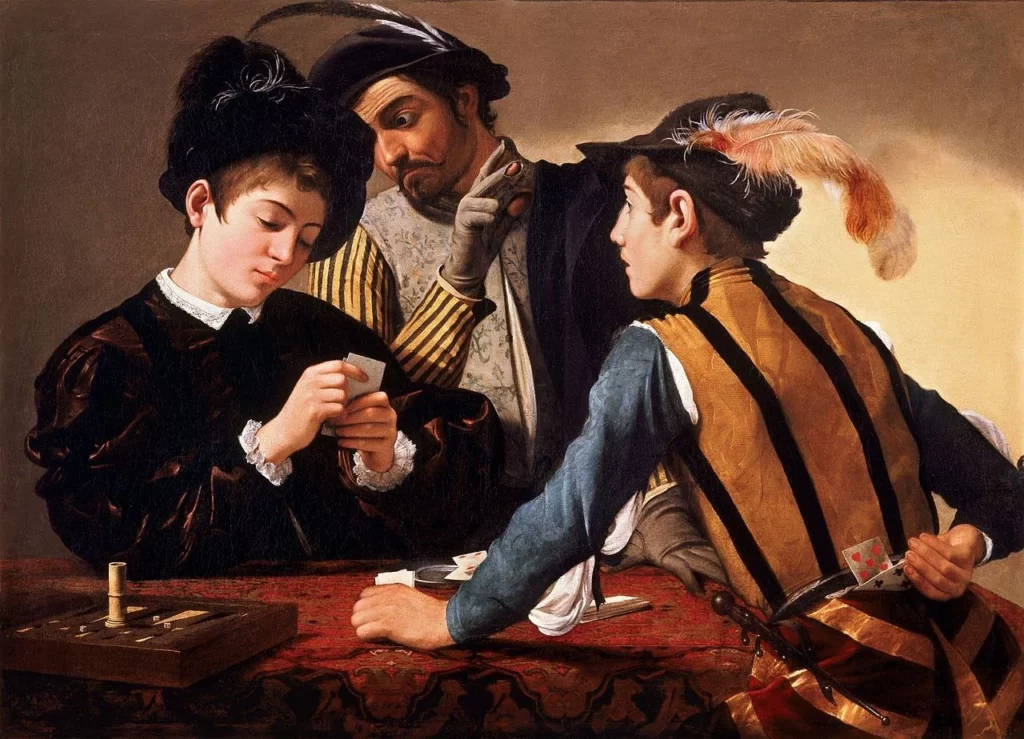Cheating is not playing, whatever...
From marathon runners who take the subway to improve their ranking to poker players using invisible ink, and not to mention the 70% of French students who admit to having cheated during their schooling… cheaters are everywhere!
Although cheating can be done in all areas, let’s focus on the game world. Want to know why cheaters cheat and how the gaming world has adapted to the ubiquity of cheaters around the gaming tables? Read this article and make up your own mind about cheaters.

Cheating, a fundamental principle
Cheating, in a few words, is breaking the rules, whether legal or moral, by pretending to respect them and in order to take advantage of them.
Just as there are different profiles of players, there are different profiles of cheaters. Those who consider that there is no fun without cheating, those who don’t appreciate the game if they don’t win it and are forced to cheat, those who cheat unconsciously, or those who cheat to make others win. Finally, each game requires a different way of cheating, by manipulating pieces for example, by “forgetting” to move, by verbal cheating or by code in video games (motherlode in the Sims, don’t play innocent, we saw you!). Personally, I admit to cheating in only one game: The Werewolves of Millers Hollow, that’s it, a fault confessed is half forgiven.

Cheating or playing with the rules
Let’s get to the heart of the matter by mentioning authors and theorists specializing in the notion of cheating. Among these authors talking about games and cheating, I knew Johan Huizinga and discovered Yvon Pesqueux during my research. Please learn (and note, for your next dinner if you want to impress your interlocutors) that for the first, we are all “Homo Ludens” and not Sapiens Sapiens because we are defined by our “playful attitude”, which pushes us to respect the rules. Indeed, for this historian, all social activities have a playful form because, as in a game, they have rules. The game would then be a mini-utopia, maintained by these rules, and anyone who cheats would break this social contract (I think that Mr. Huizinga would be very disappointed to see me cheating at the Werewolves).
As for Yvon Pesqueux’s theory, it refers to cheating in the business sector but also makes sense if applied to the world of games. According to Pesqueux, “Cheating is constructed with regard to the notion of “game” in the primary sense of the term (because it is a question of playing with the rules) and in the secondary sense of the term because cheating is born of the areas of imprecision of the rules and in the face of the hope of a gain. Cheating is therefore not only born of circumventing the rules of the game but also of their margin of imprecision.” Cheating is therefore playing both with and against the rules.
Why do cheaters cheat?
From a medical and psychological point of view, I wondered how the cheating phenomenon was justified and interpreted, or even if it was a pathology, in search of a scoop. It turns out that several studies have been conducted on the subject. One of them was interested in the pleasure taken by the cheaters in the middle of the act. The scientists in the study expected to see negative feelings from cheaters compared to other individuals, including feelings of guilt about their unethical behavior, but no such thing! Instead, the cheating participants felt more pleasure and positive emotions compared to the honest participants… I won’t draw any conclusion from this, not wanting to push you to depravity.
The second study that caught my attention was conducted by a team of researchers from the universities of Texas and Harvard. This team was interested in the hormones linked to cheating behavior. The test is quite simple: 117 participants take a series of mathematical tests, then have to score themselves based on the corrections, knowing that the candidates with the best results will receive a financial reward. At the end of the test, saliva samples were taken from all participants. The results revealed that those who had increased their number of correct answers on the test, and thus cheated, were also those with high levels of testosterone and cortisol. This is easily explained, as Professor Robert Josephs explains: “testosterone provides the courage to cheat while cortisol provides a good reason to cheat”, because testosterone “decreases fear of punishment while increasing sensitivity to reward”, while cortisol is secreted by the body to limit large variations in emotions, and thus to relieve stress.
The answer of the board game authors
Cheaters are a category of players in their own right, with expectations and desires to satisfy. Some game authors and publishers have understood this need and have created games with adapted mechanics.
Have you ever played Cheating Moth? It is a card game similar to Uno, except that it is possible to cheat. Indeed, the goal of the game is to be the first player to get rid of all his cards. And for this, there is no better way than to cheat by putting your cards in your sleeve or under your chair! In Cheating Moth, one of the players is designated as the “Guard Bug”, the guarantor of the good respect of the rules who has to make sure that the other players don’t get rid of their cards under the table but on the table. I would be curious to know if cheaters like playing Cheating Moth. For there to be cheating, there must be a circumvention or transgression of the rules, and if the rules allow cheating… is it really cheating?
While thinking about cheating-themed games, I also thought about Monopoly (yes I see you gritting your teeth at the mere reading of that word, take a breath, I won’t talk about it for long I promise) which released two editions related to this notion of cheating, one pro- and the other anti-cheating. First there was the “cheat edition”, edited in 2018, in which it was encouraged to steal tickets, skip boxes or not pay your rent to win. But did you know this other edition from 2019 called Monopoly Voice Banking? Conversely, in this version, it is impossible to cheat since it is an intelligent voice assistant that records the transactions between players and takes on the role of the bank. In addition, there are no banknotes in this edition, the voice assistant automatically debits the amount of the rent to be paid from your wallet, so there is no problem with banknote theft either! On paper, it is impossible to cheat, but I trust the inveterate cheaters to be cunning enough and use cheating all the same…

I hope that after reading this article, cheaters have learned the cause of this behavior, and that they will question their actions. I also hope that I have given the honest players the keys to understanding so that they no longer systematically blame the cheaters. And for those of you who want to start cheating to get more testosterone and cortisol, here’s a bonus Slate article (in French) on how to win every time at Battleship.
LudoTech wishes to address all the cheaters of its community: we are committed to develop a game for cheaters on OLEM!
You can also find all our other articles here.

Subscribe to the Newsletter!
Express News : 19/03/24
A significant portion of the parts has arrived at the assembler,

GAMA Expo: Key Tips for Selling Your Board Game
At the beginning of March, the LudoTech team traveled to GAMA

LudoTech editorial manifesto 2024
In the ever-evolving world of board games, each day brings its




